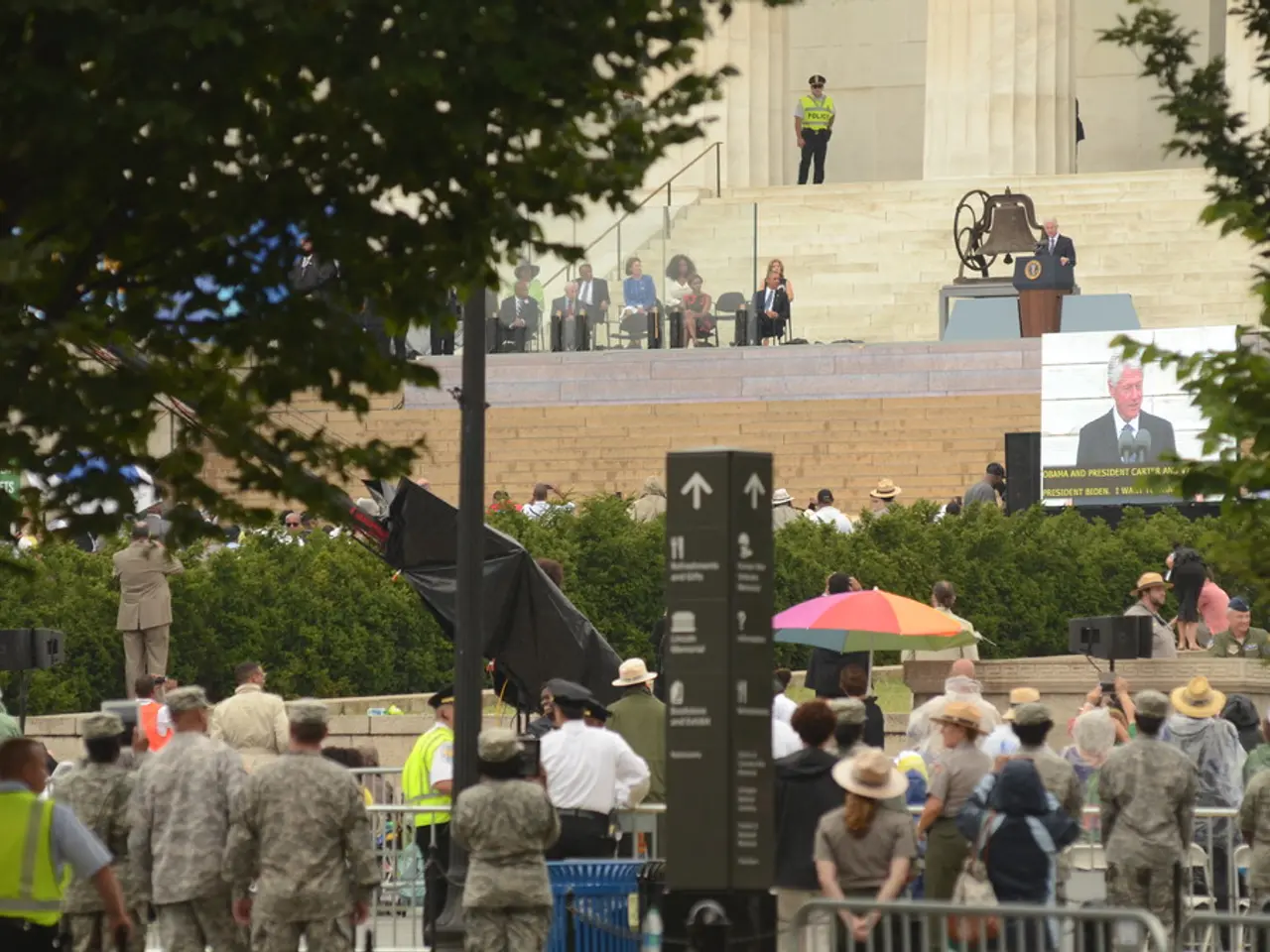Netanyahu forges ahead with Gaza occupation strategy, facing resistance within the military ranks
In the ongoing conflict in Gaza, over 1,500 Palestinians have tragically lost their lives while trying to find food at distribution points and on roads where a few UN trucks are allowed to enter, according to reports. This devastating figure does not include the hundreds of bodies still buried under the rubble, authorities warn.
The Gaza Humanitarian Foundation (GHF) has also seen tragedy, with two nurses and six people being killed while seeking help at the distribution point. The Israeli Army's operations have claimed the lives of over 61,000 Palestinians, according to Gaza's Ministry of Health.
The United States, a key ally of Israel, has been instrumental in enabling and tacitly supporting Israel's decision to expand military operations in Gaza. Despite rising civilian casualties and humanitarian crises, the U.S. has provided extensive military aid and diplomatic backing. This support includes rapid deployment of warships, billions in military aid, expedited weapons shipments, advanced defense systems, and vetoing multiple UN ceasefire resolutions aimed at halting the conflict.
These actions reflect strong U.S. support for Israel’s military strategy, indirectly influencing Israel's confidence to expand military actions. However, from 2024 onward, the Biden administration showed some public criticism of Israel's policies and called for ceasefires linked to hostage releases, and required Israel to provide assurances on weapon usage according to international law. Yet, American arms transfers continue, and U.S. vetoes in the UN have shielded Israel from international legal pressures.
International bodies and some U.S. policymakers have expressed concerns about the ramifications of Israel's expanded military offensive, warning that it will worsen humanitarian conditions and displace over a million Palestinians. However, the U.S. stance has not shifted toward preventing the escalation.
The conflict has taken a heavy toll on the Palestinians, with over 150,000 injuries reported by Gaza's Ministry of Health. The blockade on humanitarian aid entry has led to at least 180 deaths, including 93 minors, due to starvation or malnutrition.
Israeli leaders, including Prime Minister Benjamin Netanyahu, have faced growing internal opposition to the continued conflict. Despite this, Netanyahu insists on expanding the war in Gaza, aiming to "liberate all Israeli hostages" by "defeating Hamas" in Gaza. The Israeli Cabinet Security meeting, scheduled for Tuesday, may discuss the total occupation of the Gaza Strip.
The conflict, which began on October 7, has completely devastated the Gaza Strip. The Israeli Army's offensive has been met with denouncements from the United Nations and NGOs, who accuse Israel of committing war crimes. The International Criminal Court is investigating if Israel is committing genocide. Meanwhile, voices of hunger from Gaza continue to echo, as the people struggle to survive amidst the ongoing conflict.
- The average daily casualty count in Gaza, due to war-and-conflicts, politics, and general-news events, soars with over 150,000 injuries reported by Gaza's Ministry of Health.
- Despite rising concerns from international bodies and some U.S. policymakers about the humanitarian crisis in Gaza, politics and diplomacy continue to maintain strong U.S. support for Israel's military strategy, including providing billions in military aid and shielding Israel from unfavorable UN resolutions.








